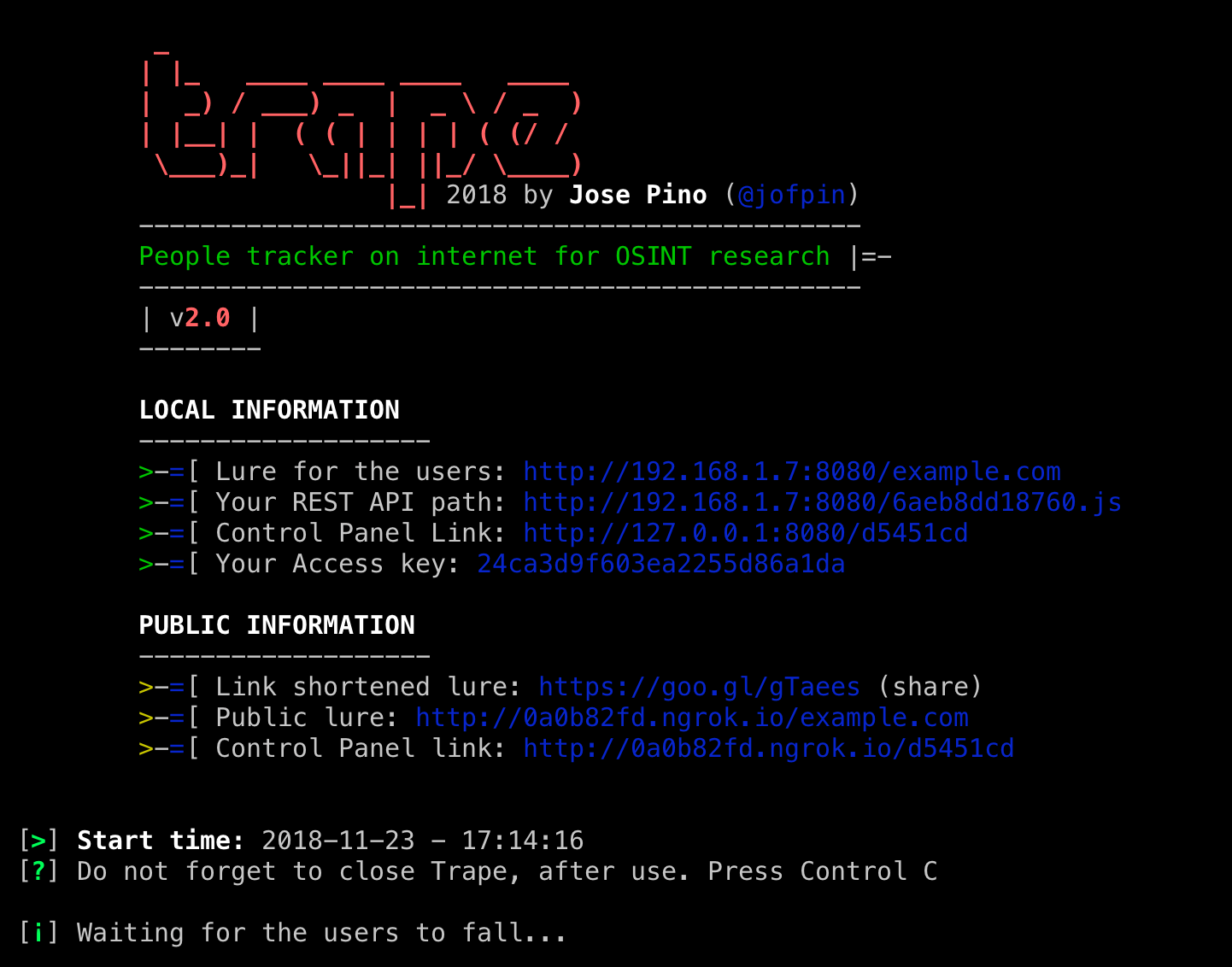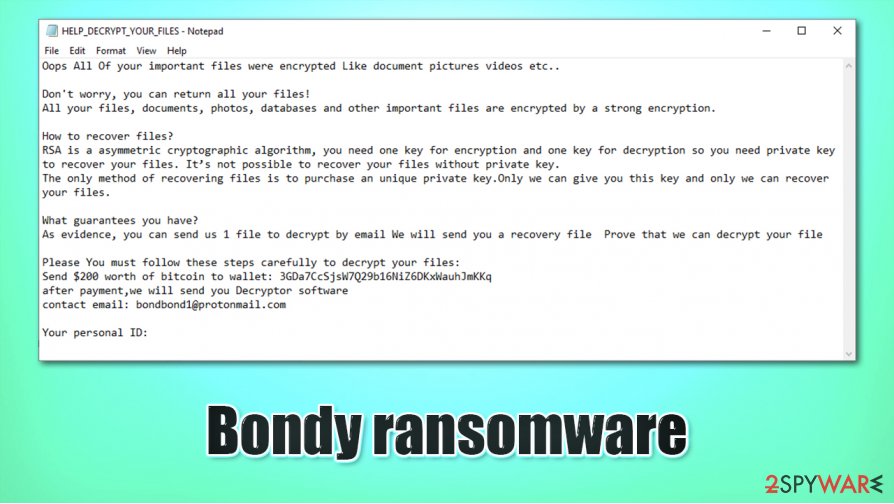From github.com

Trape is an OSINT analysis and research tool, which allows people to track and execute intelligent social engineering attacks in real time. It was created with the aim of teaching the world how large Internet companies could obtain confidential information such as the status of sessions of their websites or services and control their users through their browser, without their knowlege, but It evolves with the aim of helping government organizations, companies and researchers to track the cybercriminals.
As a security specialist, you know that there are several ways to get information about your target/client, one of them is running a remote scan and checking for open ports or any exposed vulnerabilities. A second way that is becoming very common is targeted social engineering attacks by verifying online services for OSINT and sending phishing attacks. If you are interested in the second option, Trape is your best choice.



